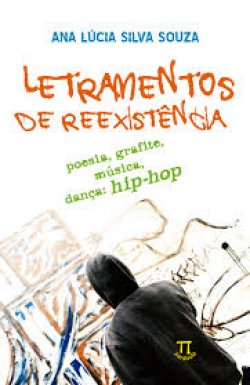
| Title | Letramentos de Reexistência: Poesia, Grafite, Música, Dança: Hip-Hop |
| Publication Type | Book |
| Year of Publication | 2011 |
| Authors | Souza, Silva, and Ana Lúcia |
| Number of Pages | 171 |
| Publisher | Palábora Editorial |
| Publication Language | Portuguese |
| ISBN or ASIN Number | 2147483647 |
| Copies at the Archive | 2 |
This study characterizes the hip hop cultural movement as a literacy agency and its activists, the belonging communities and those which are related to it, as literacy agents. The study shows, from socio-historical perspective that the unique literacies used by the young participants of this research have allowed them to redimension their identities, obtaining new meanings for their social roles and places, as established by a society still marked by tense and uneven racial and social relationships. The basic theoretical framework of this study is given by the Bakhtinian-perspective on language (Voloshinov, Bakhtin, etc) ; the multiple and heterogeneous literacy approach of the New Studies of Literacyi (Kleiman, 1995; 2006a, Barton and Hamilton, 2000; Rojo, 2009), the Cultural Studies contributions for the study of identity (Hall, 2000, 2003; Gilroy, 2001; Canclini, 2005 and the studies about education among Afro-descendants in Brazil (Barros, 2005; Fonseca, 2005; Araujo e Silva, 2005; Cunha, 2005; Cardoso, 2005 e Cruz, 2005, entre outros). The data for the study was obtained from questionnaires, open-talk meetings, individual interviews and autobiographies, and from materials produced and socialized by the participants, such as DVDs, CDs, fanzines, rap lyrics, projects, guides for lectures and workshops. The analysis pointed out a reinvention of the language practices by these subjects, in dialogue with school literacies, their daily routine literacy practices and with those practices made by black movement. The configuration of this set of written and oral language non-linear, multimodal, heterogeneous and creative practices is called in this study literacies of reexistence, literacies since they responsively contest, create, and propose changes in language uses that have already been.
